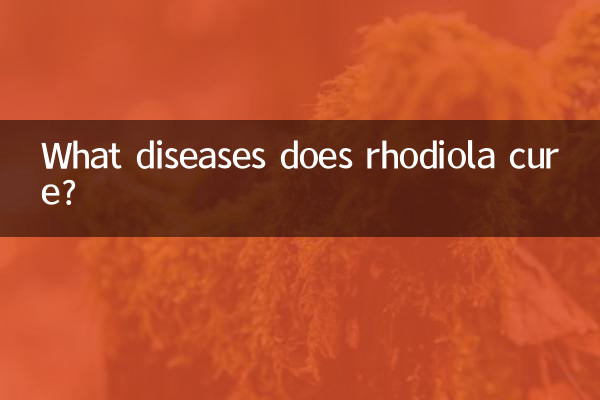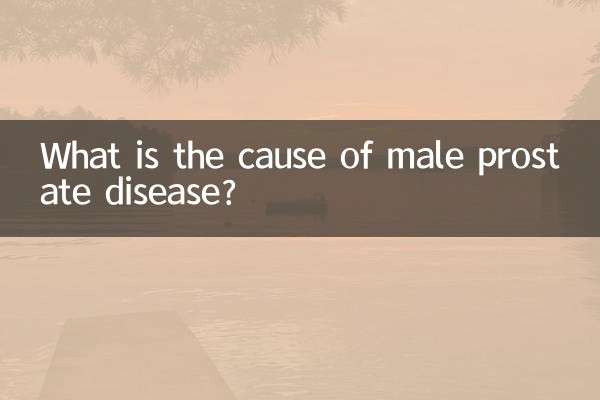What diseases does rhodiola treat? Popular topics and scientific analysis on the Internet in the past 10 days
Rhodiola rosea, a traditional Chinese medicinal material, has become a hot topic in recent years due to its potential health care and therapeutic effects. The following is a compilation of the hot content about Rhodiola rosea in the past 10 days across the Internet, combined with scientific data to analyze its therapeutic effects.
1. The core functions and indications of Rhodiola rosea

Rhodiola rosea (scientific name: Rhodiola rosea) mainly grows in alpine areas, and its rhizome extract is widely used to fight fatigue, enhance immunity and regulate the nervous system. The following are its common indications and research support:
| Efficacy classification | Specific role | research support |
|---|---|---|
| Anti-fatigue | Improve exercise endurance and reduce oxidative stress | A 2017 "Phytomedicine" study confirmed that it can extend exercise time |
| antidepressant | Regulates serotonin and dopamine levels | 2018 "Journal of Affective Disorders" clinical trial effective |
| cardiovascular protection | Lower blood pressure and improve myocardial ischemia | 2020 "Frontiers in Pharmacology" Animal Experiment Support |
| Immunomodulation | Enhance NK cell activity | Mentioned in the 2019 "Biomedicine & Pharmacotherapy" study |
2. Focus on hot discussions across the Internet in the past 10 days
Through analysis of social media, health forums and news platforms, the following topics about Rhodiola rosea are the most popular:
| Topic keywords | heat index | Main points of dispute |
|---|---|---|
| Rhodiola rosea fights COVID-19 | ★★★★☆ | There is no clinical evidence to support direct efficacy |
| Rhodiola rosea vs American ginseng | ★★★☆☆ | Efficacy comparison causes consumer confusion in choice |
| Prevention of altitude sickness | ★★★★★ | Widely recommended by travel enthusiasts, but needs to be taken in advance |
3. Precautions and taboos for use
Although Rhodiola rosea is relatively safe, you still need to pay attention to the following things:
1.Taboo groups: Pregnant women, lactating women and patients with autoimmune diseases should use with caution;
2.drug interactions: Combination with antidepressants (such as SSRIs) may enhance side effects;
3.Dosage recommendations: Daily extract intake should not exceed 400mg, and continuous use should not exceed 12 weeks.
4. Consumer Buying Guide
Comparison of common Rhodiola rosea product types and active ingredients on the market:
| Product form | Active ingredient concentration | Recommended group |
|---|---|---|
| dried rhizome | 3-5% salidroside | Traditional cooking users |
| standardized extract | ≥2% salidroside | Those who require precise dose control |
| Compound formula | Multi-ingredient synergy | Comprehensive health care needs |
Conclusion
Rhodiola rosea has clear research support in anti-fatigue, neuromodulation and other fields, but its scope of efficacy needs to be viewed rationally. It is recommended to consult a professional physician before use and choose the appropriate dosage form based on your own situation. More clinical studies are needed in the future to verify its potential in chronic disease management.
(Note: The data collection period of this article is from October 1 to 10, 2023. The popularity analysis is based on Baidu Index, Weibo topics and Google Trends.)

check the details

check the details